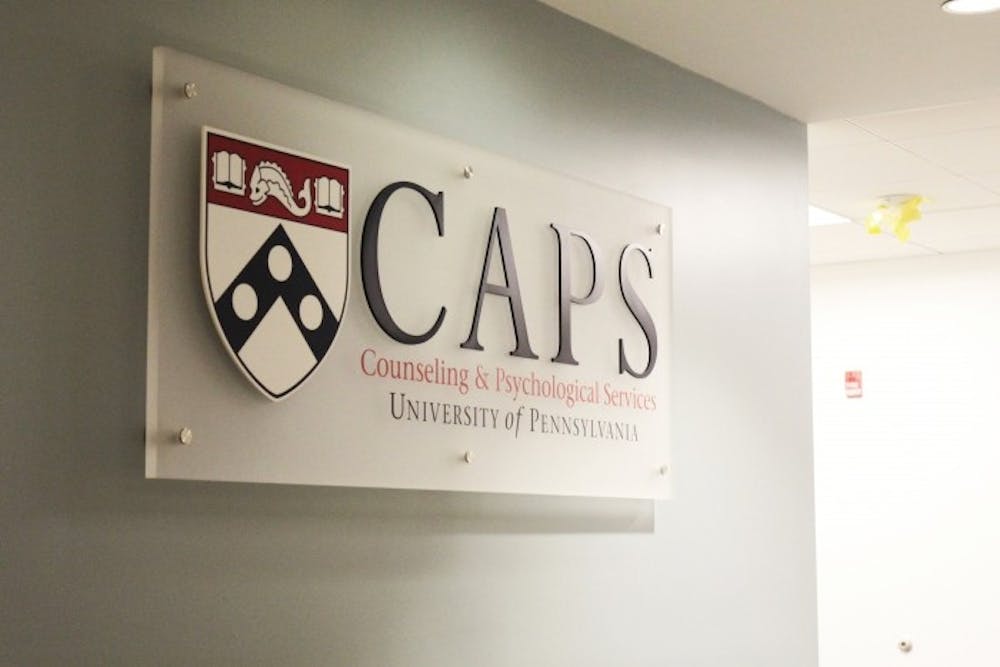
After struggling alone with the news of a family member’s illness and adjustment to life at Penn, College sophomore Natasha Cheung decided to visit Counseling and Psychological Services for the first time this January. She set up weekly appointments and saw her counselor regularly. Things got better — until summer came.
Although the start of summer eliminated the stress of school, Cheung still wished she had a counselor she could talk to regularly. Without access to the free, weekly counseling that CAPS had provided during the school year, she didn’t know where to find help. She knew private counseling would be expensive, and she didn’t want to be a bigger financial burden on her family.
“I thought that I would have had to find [a counselor] on my own,” Cheung said. “I thought CAPS only helped you through the summer if you went to them in person during the summer or if you live around the area.”
CAPS does not provide its regular services to students who are unable to visit its office during the summer, but it does have a referral program that helps match students with an outside provider anywhere in the country, and sometimes even abroad. A CAPS referral coordinator specializes in helping students to find counseling wherever they are located while taking into account the student’s request for a particular type of counselor (i.e. race, ethnicity, sexual orientation, etc.) and the student’s health insurance.
“We try and refer students to practitioners who have experience with college-age students,” Bill Alexander, director of CAPS, said. “So usually, the common thing we do is contact colleges in a particular area and ask ‘Who do you really trust? Who’s really good in your neighborhood? Who do you refer your students to?’”
He also said that both students who are studying abroad and alumni have called CAPS to use its referral process.
Prior to her interview with The Daily Pennsylvanian, Cheung hadn’t been aware of this program.
“Had I known, I would have tried the referral process,” she said. “It’s been tough with my family’s situation this summer, and I feel like talking to a counselor might have helped with that.”
College senior Sylvia Guan, who regularly received treatment from CAPS during her sophomore year, said that her counselor suggested she talk to the referral coordinator as summer approached.
After receiving a list of available counselors, Guan said that she was on her own to reach out to the individual providers and to check if they were accepting new patients. She ultimately failed to find a counselor that summer due to her internship schedule and the remote location of the area she was staying in.
“[CAPS] emailed me periodically throughout the summer to check up on me and asked if I found a provider, so they did make sure that I followed through with the process,” Guan said. “But in my circumstance, it was hard to find time and the right therapist to get treatment.”
She said she ended up talking to her CAPS counselor by phone several times throughout the summer.
For students struggling to find an outside provider through the referral process, Alexander said that CAPS counselors can offer Skype or phone call counseling sessions. But these types of sessions are rare, he added.
“We don’t like to [do counseling over Skype] in an ongoing formal way because it’s not really a relationship, but we do it if it’s an emergency or a one-time deal,” he said.
While she was aware of the referral program that CAPS provides, Guan said that it may have been easier to find a summer counselor if she had started the process earlier than the end of April.
“If I were to give advice … I just want people to understand that they won’t have the accessibility of CAPS during the summer and that they should take steps as early as possible to work with the referral coordinator to find the right provider in the area you’re going to be in,” she said.
Guan added that CAPS could also help students continue treatment during the summer by informing them early on about the referral program. While the referral protocol is outlined on the CAPS website, the program does not seem to be widely known among Penn students.
“We have not advertised this as a program available to everyone although we do provide that service if asked,” Alexander said.
Wharton senior Phillip Isom, co-director of an on campus peer counseling group called Penn Benjamins, said he and the other members of his organization knew fairly little about the summer referral process despite the organization’s close relationship with CAPS.
“CAPS does a lot of really great things that a lot of Penn students don’t know about,” Isom said. “I think one of the biggest problems really is the miscommunication between CAPS and students, where a lot of students don’t even understand the full range of services that CAPS offers and CAPS doesn’t do a good job of publicizing them.”
Isom added that Penn Benjamins plans on discussing the difficulty of finding counseling during the summer as well as the lack of awareness of the referral program with CAPS when the group reconvenes in the fall.
CAMPUS RESOURCES
The HELP Line: 215-898-HELP
Counseling and Psychological Services: 215-898-7021 | 215-349-5490 (Nights and weekends)
University Chaplain’s Office: 215-898-8456
Student Health Service: 215-746-3535
Office of the Vice Provost for University Life: 215-898-6081
Reach-A-Peer Helpline: 215-573-2727 (9 p.m. - 1 a.m. every night) | Letter-writing service (Any time)
The Daily Pennsylvanian is an independent, student-run newspaper. Please consider making a donation to support the coverage that shapes the University. Your generosity ensures a future of strong journalism at Penn.
Donate



